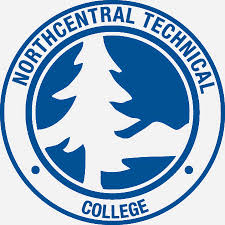NTC Receives $181,449 College Completion Grant from Great Lakes

By the time college students have completed three-quarters of their academic program, it might seem like their path to graduation is set. Unfortunately, that’s not always the case. Despite the significant time and money already invested in their education, these students can be at-risk of dropping courses, withdrawing from academic programs and stopping out. Near-completers who drop out at the highest rate are low-income students and students of color.
The personal and community impact of non-completion can be profound. Without the earning power a degree or credential provides, students often struggle with meeting their financial obligations. This issue is magnified in high-demand fields where positions remain unfilled, preventing employers from growing and our communities from prospering.
To help propel more at-risk students to graduation, Northcentral Technical College (NTC) has been awarded a $181,449 College Completion Grant from Great Lakes Higher Education Guaranty Corporation. NTC is one of 14 two- and four-year colleges in five states that were awarded College Completion Grants.
Nearly graduated students can face an array of challenges as they approach the finish line: increasing textbook and supply costs, class scheduling conflicts or maxing out financial aid. NTC has researched and identified institutional barriers and personal obstacles to completion. Great Lakes grant funds support the planning, launch and implementation of strategies that were proposed to remove those obstacles. NTC will proactively identify students who have completed 75 percent or more credits within a program and will use the grant funds to support these students as they successfully graduate from their programs. A Completion Specialist work individually with students and assess credit for prior learning applications to help determine if a student could be granted credit for their work or life experience outside of the classroom. The Completion Specialist will also collaborate with program advisors and an Instructional Assistant who will be hired to provide additional academic support to near-completers in the most challenging courses for their programs.
“We’re confident that proactively identifying students who are nearing their credential completion for support services, as well as providing supplemental instruction, tutoring, and credit for prior learning guidance will make a measurable difference on completion rates for our at-risk students,” said Dr. Lori Weyers, President of NTC.
Additional services will be provided to students who have almost completed their academic program including a final year experience orientation, which is designed to communicate critical and beneficial information and resources to these students. Key topics will be addressed include: final year planning, credit for prior learning, transfer options and services, and career placement services and opportunities such as resume building, job fairs and mock interviews.
Emergency grants will also be available to students who need financial support through final year case management services and collaborative work with program advisors.
“We are impressed that NTC and our other grant recipients critically analyzed their institutional data and then proposed comprehensive plans to help struggling students cross the finish line and begin careers in high-demand fields,” said Richard D. George, President and Chief Executive Officer of Great Lakes. “Given our philanthropic focus on advancing completion, we’re interested to see how these plans can positively impact graduation rates for low-income students, first-generation students and students of color.”




